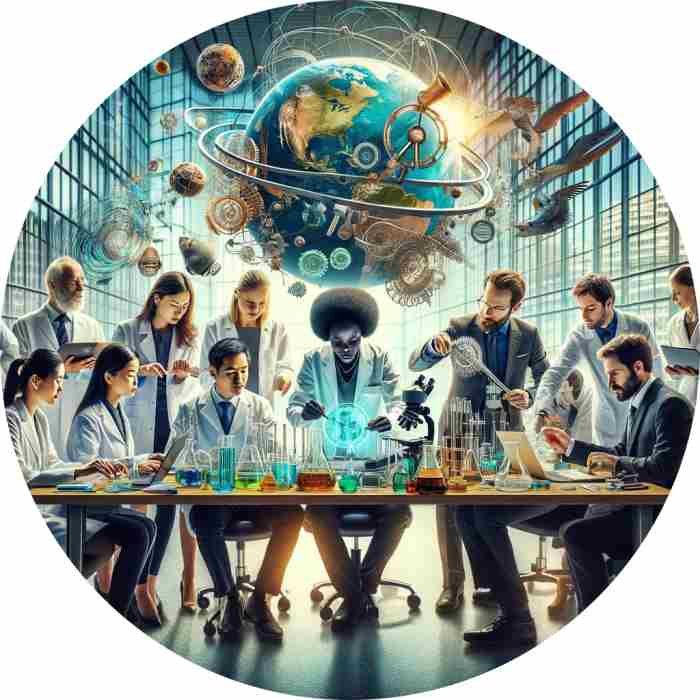On 14 and 15 December, scientists, policymakers, and others congregated at the European Organization for Nuclear Research (CERN) in Geneva, Switzerland, to bid farewell to the International Year of Basic Sciences for Sustainable Development. However, even as the curtain comes down on the International Year, another curtain is rising on the International Decade of Sciences for Sustainable Development, which gets underway in January. UNESCO is the lead agency for both.
The end is Just the Beginning

Geneva, Switzerland – As the International Year of Basic Sciences for Sustainable Development concludes, the global scientific community turns its focus towards the newly inaugurated International Decade of Sciences for Sustainable Development. This transformative initiative, spearheaded by UNESCO, aims to integrate a broad spectrum of scientific disciplines in addressing pressing global challenges.
The Dawn of a New Decade
The International Decade, building upon the momentum of its predecessor will encompass basic, applied, social, and human sciences. Its ambitious goal is to catalyze transformative changes across societies, economies, and the environment. It is not just a continuation but an expansion in scope and depth, addressing the intricate linkages between scientific breakthroughs and their real-world applications.
Urgency Amidst Global Challenges
The stark reality of our global challenges underscores the urgency of this initiative. With the world falling behind on the United Nations’ 17 Sustainable Development Goals, the Decade is a timely response. Key issues like inadequate progress in water, sanitation, and hygiene coverage, escalating climate disruption, and unsustainable production and consumption patterns necessitate a concerted scientific effort.
Policy, Science, and Public Support: A Tripartite Focus
The Decade’s strategy emphasizes the interdependence of sound policies, robust scientific research, and strong public support. The aim is to forge a new social contract for science, aligning scientific endeavours with societal needs and sustainable development goals. A crucial part of this strategy involves demystifying science to foster global scientific literacy, thereby enhancing public understanding and trust in scientific processes.
Embracing Transdisciplinarity in Problem-Solving
Recognizing the interconnected nature of global challenges, the Decade advocates a transdisciplinary approach to problem-solving. The COVID-19 pandemic demonstrated the effectiveness of such an approach, combining insights from various fields like virology, economics, and psychology. This broader perspective is vital for addressing complex issues without inadvertently creating new problems.
UNESCO’s Role and the Path Forward

UNESCO, with its expansive mandate covering various scientific and cultural domains, is uniquely positioned to champion this transdisciplinary approach. The organization is not just leading by example but also aims to reshape the scientific system to be more dynamic, inclusive, and responsive. A key strategy includes promoting the practice of open science, enhancing inclusiveness, transparency, and trust in scientific endeavors.
The Official Launch and Monitoring Progress
The Decade is set to be officially launched in Colombia during the Open Science Forum of Latin America and the Caribbean (CILAC) in October 2024. This event will mark the beginning of a concerted global effort in science and policy. To track progress, UNESCO plans to release three comprehensive reports in 2026, 2029, and 2032, providing critical insights into the effectiveness and impact of the Decade’s initiatives.